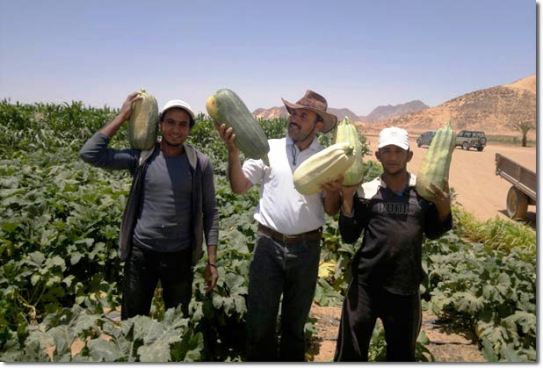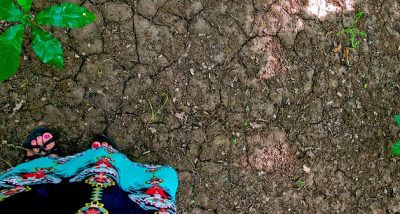Who says you can’t make the desert bloom? The desert regions of Israel and Jordan have for years been the subject of numerous agricultural projects. Some of these projects include creating community gardens by residents of desert towns; and being involved in epic Sahara forest projects. Now let’s look at what’s happening in Wadi Rum.
Jordan’s Wadi Rum Desert region (see it in pictures) has been known for years as a panoramic desert tourism location with outstanding desert landscapes and wind blown rock formations.
What this area has not been known for is any kind of serious agriculture, until recently.
Now, Bedouins living in the Wadi Rum region have become involved in unique agricultural projects that are beginning to become successful.
These projects reported in Permaculture News involve growing a variety to fruits and vegetables including eggplants, cabbage, figs and pomegranates, potatoes, squash, tomatoes, and other vegetables.
The crops grown there by Rum Farm Organics are being grown by using special irrigation techniques and fertilizers from the Permaculture design system that “seeks to minimize waste, human labor, and energy input by building systems with maximal benefits between design elements to achieve a high level of synergy.”
This method of agriculture is said to have been in use in ancient times by such peoples as the ancient Egyptians and Nabateans. Special plastic “poly tunnels” are also used to help conserve water and deal with extreme desert temperatures.
The project has been ongoing for more than three years and the results appear to be very successful. The main fertilizer used is aged animal manure from chickens, sheep, goats and cows, with a mulch of alfalfa and shredded weeds added. Irrigation involves digging small canals and drip irrigation methods. The systems used have already been in use extensively in the Jordan Valley. Mulching around trees such as pomegranates involves using what is known as a “chopndrop” method that helps conserve water.
Permaculture’s Geoff Lawton, who visited the Wadi Rum site recently, reported that much progress has been made there since the initial report on the project was made in 2010: “What really needs to be understood from the ancient traditional production systems of pre-industrial agriculture that have remained fertile and stable for millennium, is the positive edge relationships of crop production areas,” says Lawton.
He seems to have a point as the methods being employed in Wadi Rum are now definitely bearing fruit.
More articles on Middle East desert agriculture:
Community Gardens Sprout in Israeli Desert Town
Meribol’s Futuristic Hydrogel to Grow Food on Desert Sand
Jordan Signs Up for Epic ‘Sahara Forest Project’
Hungry Persian Gulf States Look to Mycorrhiza Fungus to Grow Crops in Desert
Wadi Rum agriculture photos by Permaculturenews.org





This indicates that desert regions can indeed bear fruit. Israel pioneered a lot of desert irrigation and farming methods; especially their now famous drip irrigation systems that are in use around the world.
More depth on this project at the PRI’s news site: http://permaculturenews.org/2013/12/10/desert-food-forest-organic-commercial-production-three-years-update-wadi-rum-consultancy/
I agree, the title made me cringe. It is convetional monocrop agriculture that defies nature.
You are right Giovanni. Let’s hope one day the world teaches that your earth-based method is the most natural one in deserts.
Great project – a better title though would be “Wadi Rum Bedouins Work Well with Nature by Growing Organic Veggies”. There’s a lot of deep understanding gone into this work.